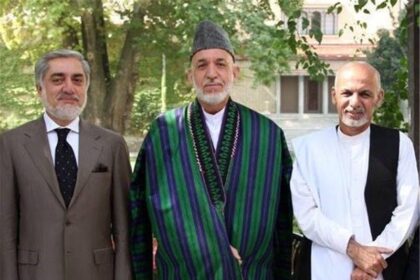RASC News Agency: A bombshell report by the BBC has uncovered disturbing new evidence implicating General Sir Gwyn Jenkins former commander of the United Kingdom’s elite special forces in a concerted campaign to block asylum applications submitted by Afghanistani commandos who had served alongside British troops in Afghanistan. The commandos, many of whom undertook dangerous joint operations with British forces during the two-decade war, were denied protection in the United Kingdom on questionable grounds, often citing vague “security risks” and “political sensitivities.” The BBC investigation suggests that these rejections were not isolated bureaucratic failures but rather the result of a deliberate and orchestrated effort, directly influenced by General Jenkins himself.
The issue takes on a more sinister dimension in light of ongoing criminal investigations into alleged war crimes committed by British special forces in Afghanistan, including the extrajudicial killing of detainees during covert operations. Legal experts and human rights advocates assert that Afghanistani commandos present during many of these missions could have served as critical witnesses in these inquiries. However, under British law, testimony from foreign nationals outside the UK cannot be legally compelled, thus making the denial of their asylum not only a humanitarian failure but also a strategic obstruction of justice. Internal documents and whistleblower testimonies cited in the BBC report allege that General Jenkins personally intervened in the asylum process, issuing directives that ensured the commandos’ applications were systematically and unjustly denied. Officers under his command were reportedly instructed to fabricate assessments, manipulate threat evaluations, and even forge documentation to construct artificial grounds for rejection.
As a direct result of these actions, numerous Afghanistani commandos were left stranded in Taliban-controlled Afghanistan, where they were identified, captured, and in many cases subjected to torture, public executions, or enforced disappearances. These individuals once hailed as Britain’s most trusted local allies were abandoned to face the very regime they had risked their lives to resist. A senior source within the British Ministry of Defence confirmed that Jenkins’ involvement was “neither incidental nor passive.” “These were top-down decisions, executed with full knowledge of the implications. Officers in special forces units do not act without orders this was sanctioned at the highest level,” the source stated. Perhaps most damning are the revelations that General Jenkins was fully aware of allegations surrounding the unlawful killing of civilians and detainees by British forces in Afghanistan but failed to report these to higher military authorities. Instead, he allegedly facilitated a strategy of concealment and silence one that included the effective exile of potential whistleblowers who could have exposed misconduct.
Despite these grave allegations, Jenkins currently serves as the Senior Defence Adviser to the British Secretary of State for Defence and is slated to become the next Commander of the Royal Navy a trajectory that underscores the profound impunity often afforded to senior military officials in the United Kingdom. Legal analysts have called for a full parliamentary inquiry into what appears to be a calculated cover-up, in which Afghanistani commandos already targets of Taliban vengeance were denied sanctuary in order to protect institutional interests and shield senior figures from accountability. Human rights organizations are also demanding the immediate reopening of all rejected asylum cases and the prosecution of those found to have deliberately manipulated immigration and asylum procedures for political or legal gain.
This revelation arrives as yet another indictment of how Western governments have failed their Afghanistani partners. These commandos were not mere collaborators they were combatants in a joint cause, frontline actors in Britain’s longest war. Their betrayal is not only a humanitarian tragedy but a stain on the moral conscience of a nation that once claimed to uphold the values of justice, honour, and loyalty. “To abandon these men to the Taliban,” one human rights advocate remarked, “is not just a policy failure it is an act of calculated cowardice.”






